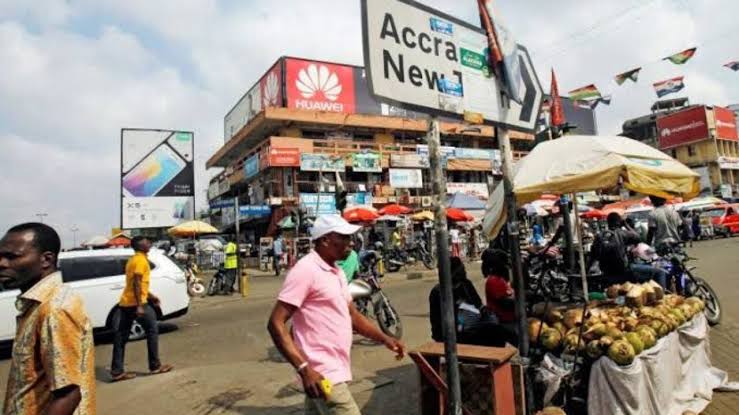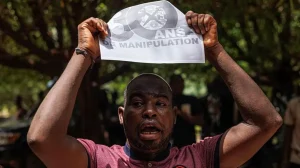
A Ghanaian court has blocked a planned youth-led protest aimed at addressing corruption, the high cost of living, and the president’s failure to sign a controversial anti-LGBTQ bill into law.
The protest, dubbed “The Gen-Z Demo,” was organized by a coalition of civil society and pressure groups and was scheduled to take place from July 31 to August 6.
High Court Judge Mary Yanzuh issued the order following a police application seeking to prohibit the event. Police prosecutor Sylvester Asare argued that the extended duration of the protest posed security and logistical challenges. “Given the number of days proposed for the protest, providing adequate security would severely strain our human, logistical, and operational capabilities, especially in this election year with other political activities taking place,” Asare told AFP.
Bernard Mornah, one of the protest organizers, expressed disappointment with the court’s decision. “This protest was a chance for the youth to voice their frustrations and demand accountability,” he said. “Blocking this demonstration silences our calls for change and undermines our democratic rights.”
Ebenezer Havor, a convener of the demonstration, also voiced frustration. “Our intention was to call on the president and his team to implement measures to fix the economy, tackle corruption, and show their commitment to the Sexual and Ghanaian Family Values Bill,” Havor told AFP. “This bill reflects the values of many Ghanaians, and the president’s refusal to sign it is a significant point of contention.”
Ghana’s parliament voted to pass the controversial bill to severely restrict LGBTQ rights in February, but the president has yet to validate it into law. Despite a slight easing of inflation to 22.8 percent in June 2024, Ghana continues to struggle with economic challenges, including a depreciating cedi currency and soaring living costs.
The protest cancellation underscores the widening gap between young people and their government, with many expressing growing dissatisfaction with democratic institutions and leadership on the continent, as highlighted in the latest Afrobarometer report.
“We will find new ways to demand the change that Ghana needs,” Mornah vowed.








